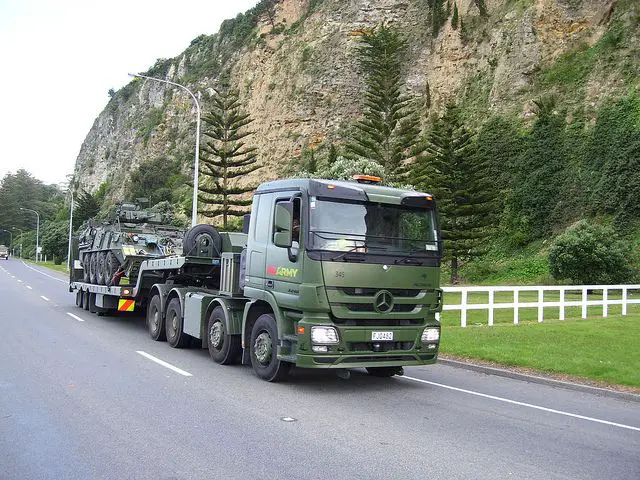Military chiefs of the United States and New Zealand have renewed for
an indefinite period a logistics cooperation agreement that allows the
two forces to work more closely together, the head of the New Zealand
Defence Force announced Wednesday, November 7, 2012.
|
The
Chief of Defence Force, Lieutenant General Rhys Jones, said he signed
the treaty-level Acquisition and Cross Servicing Agreement (ACSA) with
U.S. Pacific Commander, Admiral Samuel J. Locklear III, in Sydney, Australia,
on Tuesday.
The ACSA would serve to further the interoperability, readiness, and effectiveness
of New Zealand and U.S. military forces through increased logistic cooperation,
Jones said in a statement.
The agreement was designed to facilitate reciprocal logistic support to
be used primarily during combined exercises, training, deployments, port
calls, operations or other cooperative efforts.
The agreement, which entered into force Wednesday, would provide New Zealand
with support for both routine activities such as exercises or while on
operations such as in Afghanistan, and reduce costs and increase efficiencies.
It replaced the previous ACSA, which had been in force since Nov. 2, 2000,
with the difference that the new agreement had no expiration date.
"The ACSA is an important strand to New Zealand's defense relationship
with the U.S. providing for wide ranging mutual logistics support, provision
of supplies, and the provision of services between the New Zealand Defence
Force and the U.S. military at a strategic level," said Jones.
"For example, it is important for our operations in Afghanistan and
has benefited us considerably during the recent RIMPAC (Rim of the Pacific)
exercise. The agreement provides the umbrella for a raft of implementing
arrangements."
Locklear said the new agreement was important for the bilateral partnership,
especially in the Pacific region.
"This agreement, at an important time in our relationship, will increase
capability and interoperability and help us provide more affordable support
for humanitarian relief, disaster assistance, counter-terrorism, capacity
building and collective defence throughout the Pacific region," Locklear
said in the statement.
|
















